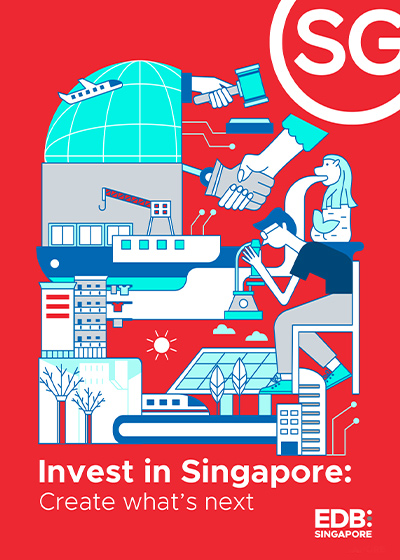Research, development and production of mRNA-based medicines will benefit the pharmaceutical and biotechnology ecosystem that has been built here over the past several years.
"I believe Singapore is incredibly well placed for new investments," Mr Peacock told The Straits Times in an interview.
Last month, Hilleman Laboratories, a joint venture between MSD and British charitable foundation Wellcome Trust, broke ground on a 30,000 square foot manufacturing facility at Depot Road. The new venture, together with an existing research and development(R&D) facility at Biopolis, will form an $80 million vaccine and biologics development and manufacturing hub, the first of its kind in Singapore.
The move follows in the footsteps of drugmakers such as Thermo Fisher, Sanofi and BioNTech, which have also recently announced new vaccine making facilities here.
Mr Peacock said Singapore's resilience and adaptability impacted MSD: "It comes down to the investments that have been made over time by Singapore in terms of the educational system, and how they approach tax policy, international trade and protection of intellectual property.
"In a way, I think Singapore has made all the right decisions over time to ensure that it's a place that attracts inward investment."
Mr Peacock added that a lot of academic and laboratory research is taking place here in the biotech sphere, and companies, including MSD, will be looking to partner with these initiatives.
"As a large multinational, ultimately we maintain our own internal development functions, but we also maintain enormous networks within both private sector, academic research as well as government sponsored labs," he said.
MSD has been operating in Singapore for over 30 years. It opened its Asia-Pacific headquarters here in 2007, and has invested in excess of US$2 billion ($2.71 billion) into manufacturing assets since 1997 and an additional US$240 million in research since 2009.
It has 1,700 employees here, making it one of the country's largest bio-pharmaceutical employers.
MSD says it has also created about 100,000 indirect jobs in Singapore, according to an estimate in 2020, as a result of its business dealings with local firms, domestic suppliers and vendor partners.
"Singapore's deep base of skilled talent, strong infrastructure, manufacturing, and digital capabilities as well as robust research ecosystem makes it a key node for us to connect with the growing Asian market," Mr Peacock said.
The company's Translational Medicine Research Center in the Biopolis biomedical research campus at One-North helps develop the next generation of innovative medicines.
MSD's Singapore IT Hub at MYP Center in Battery Road aims to harness innovations such as artificial intelligence and cloud and cybersecurity solutions to tackle the biggest challenges in converging healthcare, information, and technology.
While MSD failed to develop a Covid-19 vaccine, it is one of the few companies that have moved towards launching an oral medicine to treat the viral infection.
In October last year, MSD announced a supply and purchase agreement with Singapore for Molnupiravir, an investigational oral antiviral candidate to treat Covid-19. It has also entered into similar agreements for molnupiravir with governments from over 30 markets worldwide.
Mr Peacock hopes that molnupiravir and other treatments and vaccines will give way to a world where Covid can be treated as a manageable condition and not a fatal disease.
However, there will be an unfortunate legacy of Covid-19: "Covid has pulled people out of healthcare systems.
"We have not seen patients come back and engage with healthcare systems to the degree that they otherwise would have.
"So what we are expecting going forward is that there are going to be a number of sequels to Covid."
Diseases like cancer or diabetes may have progressed silently in the background, as people missed their regular health screening appointments.
"It now depends on our ability on how fast we can get the medicine to people who have not engaged with healthcare professionals in the past two and a half years," Mr Peacock said.
Source: The Straits Times © SPH Media Limited. Permission required for reproduction.








